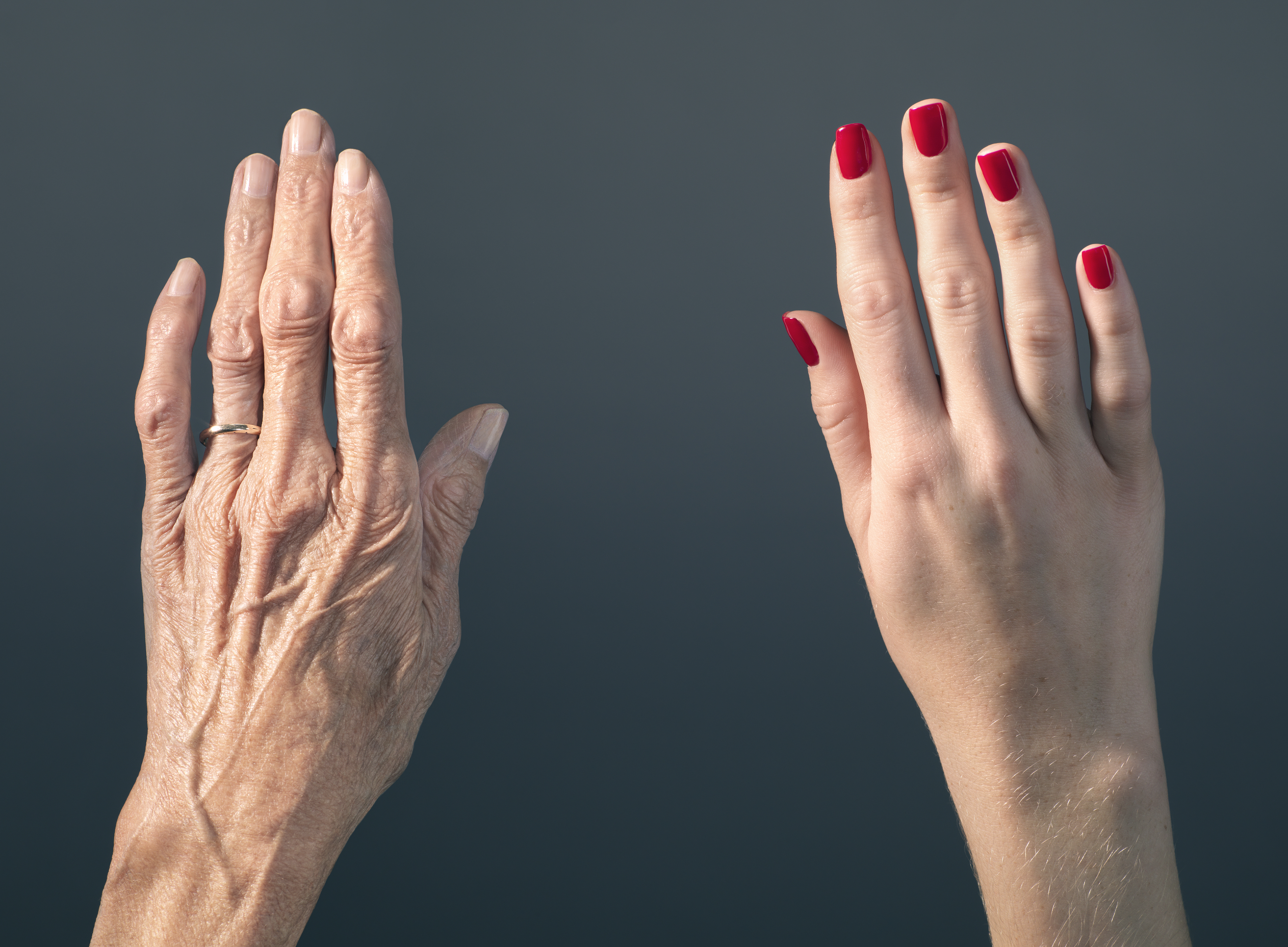What are longevity clinics?
Meeting the growing demand to stay young


A free daily email with the biggest news stories of the day – and the best features from TheWeek.com
You are now subscribed
Your newsletter sign-up was successful
Do you want to extend your lifespan and have $100,000 to spare? Well, a longevity clinic may be right for you.
What are they?
Longevity clinics are facilities aimed at slowing down aging and providing treatments "optimizing patients' health for more years," according to The Wall Street Journal. The facilities offer services that are supposed to help with illnesses, as well as counter natural aging processes. However, many of the methods come from "outside the mainstream," according to experts. However, partaking in such an experience comes at a hefty price, sometimes costing as much as $100,000 per year, and services are not covered by insurance. Many use biomarkers, or "indicators in the body's fluids and tissues that can predict various diseases and conditions," to determine a client's course of action toward longevity, according to the New York Post.
The clinics do offer a variety of services including various screening for diseases like cancer, body imaging, medical tests and cognitive testing. In some cases, they offer rarer services like DNA methylation tests, which analyze what "aging-associated genes are activated," the New York Post reported. Those in favor of the clinics claim that these strides can make a difference. "What we see as 'normal' aging — decrepitude, frailty, disability and degeneration — is truly abnormal aging," remarked Dr. Mark Hyman, the medical director of longevity club RoseBar, to the New York Post. "Aging is a disease that can be treated." The World Health Organization previously proposed to include old age in the International Classification of Diseases, which is "a global, multilingual catalogue of known human diseases, medical conditions and mental health disorders," before ultimately withdrawing it.
The Week
Escape your echo chamber. Get the facts behind the news, plus analysis from multiple perspectives.

Sign up for The Week's Free Newsletters
From our morning news briefing to a weekly Good News Newsletter, get the best of The Week delivered directly to your inbox.
From our morning news briefing to a weekly Good News Newsletter, get the best of The Week delivered directly to your inbox.
However, many also believe the industry is comprised of "overpromising and snake oil," as described by Melissa Eamer, the founder of longevity clinic Modern Age, to the New York Post. "It's not a regulated market," commented Dr. Andrea Maier, a researcher on aging, to the Journal. "Anybody who is treating your toenails can say they're contributing to longevity."
Why are they becoming more popular?
The clinics "capitalize on Americans' obsession with living longer and desire for personalized medical care," according to the Journal. "There are a lot of millionaires and billionaires that are trying to enjoy their wealth as long as they possibly can," added Phil Newman, the editor-in-chief of research and media company Longevity Technology. Most people who frequent the clinics are those over 40 who are willing to accept the risk of the services. However, there has recently been a marked increase in people in their 20s.
"A lot of people think that aging doesn't start until you're in your 50s," said Eamer. "Aging really starts in your 30s, which is when your bone mass peaks, so it's important to get to people early. There's so much we can control." In addition, some have sworn by the practices, especially in easing chronic conditions. "You spend money on what you want, and quality of life is worth it to me to not just live longer but live healthier," said 53-year-old Anita Wheaton, who actively uses longevity services, to the Journal.
On the other hand, some experts worry about the risks associated with pursuing such treatment. Overdiagnosing could be a ready side effect, essentially bringing to light conditions that are not likely to cause health problems and causing people to get unneeded procedures. Some clinics also offer non-FDA-approved services like various stem-cell therapies. In general, these therapies are only approved in some circumstances and can lead to other health problems, the Journal continued. "People often try these products based on the rationale, 'Well, it's not going to hurt me,'" said Sean Morrison, the former president of the International Society for Stem Cell Research, to the Journal. "But there is a cost to these products beyond the fact that you're spending thousands of dollars."
A free daily email with the biggest news stories of the day – and the best features from TheWeek.com
Do you need the services?
"Eighty percent of aging — well, maybe more — is simple things that don't cost much," according to Dr. Mark Hyman, the author of the book "Young Forever." He included practices like eating healthy, getting regular exercise and sleep and getting proper vitamins and nutrients. "There are things almost anybody could do right now to start to put themselves on a better health span trajectory," meaning living as long as possible without disability hindering you, said Matt Kaeberlein, a biogerontologist at the University of Washington and the chief science officer at longevity company Optispan, to USA Today.
Many of the clinics assist in making lifestyle changes but also act as "a form of ultra-proactive preventative care where conditions that may develop, or are close to developing, are stopped in their tracks," described Fast Company. But aging is a natural part of human existence, and "we're not going to cure death," Dr. Eric Verdin, of the Buck Institute for Research on Aging, told USA Today.
Devika Rao has worked as a staff writer at The Week since 2022, covering science, the environment, climate and business. She previously worked as a policy associate for a nonprofit organization advocating for environmental action from a business perspective.
-
 The ‘ravenous’ demand for Cornish minerals
The ‘ravenous’ demand for Cornish mineralsUnder the Radar Growing need for critical minerals to power tech has intensified ‘appetite’ for lithium, which could be a ‘huge boon’ for local economy
-
 Why are election experts taking Trump’s midterm threats seriously?
Why are election experts taking Trump’s midterm threats seriously?IN THE SPOTLIGHT As the president muses about polling place deployments and a centralized electoral system aimed at one-party control, lawmakers are taking this administration at its word
-
 ‘Restaurateurs have become millionaires’
‘Restaurateurs have become millionaires’Instant Opinion Opinion, comment and editorials of the day
-
 Scientists are worried about amoebas
Scientists are worried about amoebasUnder the radar Small and very mighty
-
 Metal-based compounds may be the future of antibiotics
Metal-based compounds may be the future of antibioticsUnder the radar Robots can help develop them
-
 Deaths of children under 5 have gone up for the first time this century
Deaths of children under 5 have gone up for the first time this centuryUnder the radar Poor funding is the culprit
-
 Stopping GLP-1s raises complicated questions for pregnancy
Stopping GLP-1s raises complicated questions for pregnancyThe Explainer Stopping the medication could be risky during pregnancy, but there is more to the story to be uncovered
-
 Nursing is no longer considered a professional degree by the Department of Education
Nursing is no longer considered a professional degree by the Department of EducationThe Explainer An already strained industry is hit with another blow
-
 More adults are dying before the age of 65
More adults are dying before the age of 65Under the radar The phenomenon is more pronounced in Black and low-income populations
-
 Tips for surviving loneliness during the holiday season — with or without people
Tips for surviving loneliness during the holiday season — with or without peoplethe week recommends Solitude is different from loneliness
-
 More women are using more testosterone despite limited research
More women are using more testosterone despite limited researchThe explainer There is no FDA-approved testosterone product for women
